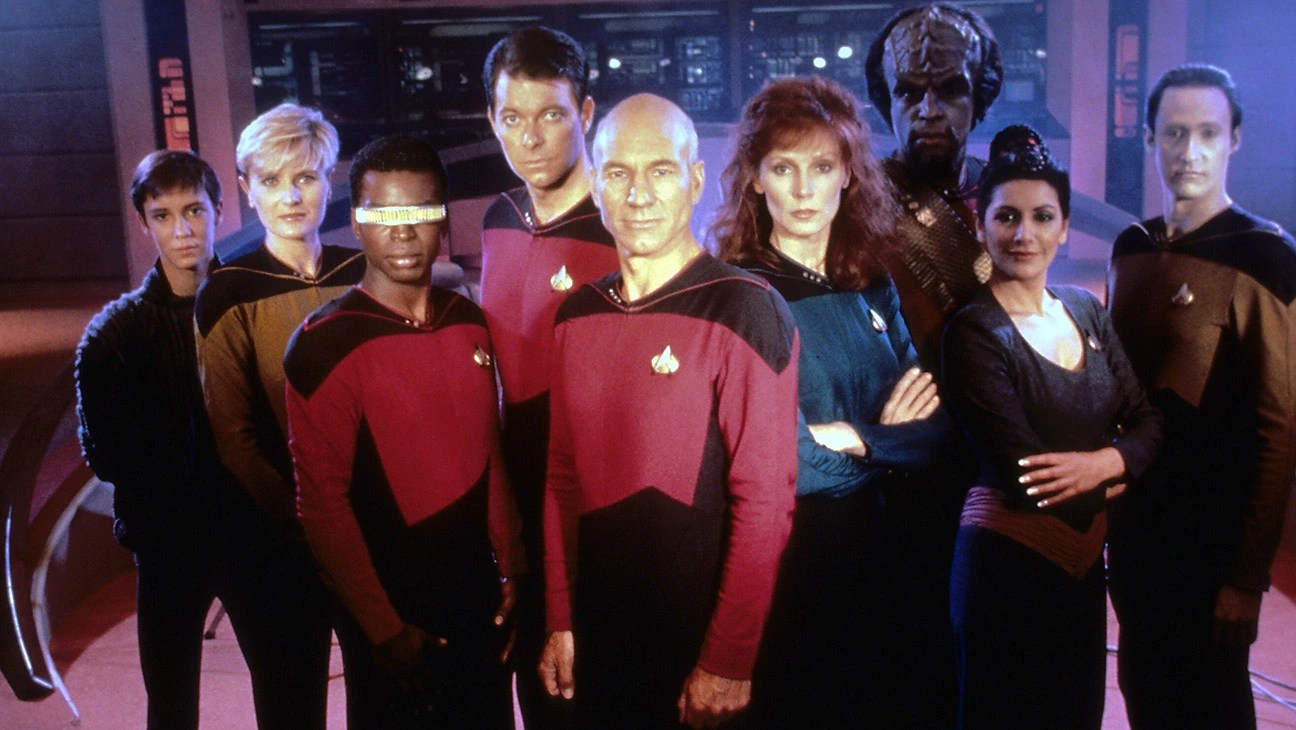Star Trek: The Next Generation (TNG) has been a cornerstone of science fiction television since its inception, captivating audiences with its rich storytelling and complex characters. The last episode, titled "All Good Things...", serves as a fitting conclusion to the beloved series, wrapping up the journey of Captain Jean-Luc Picard and his crew aboard the USS Enterprise-D. This article delves into the themes, character arcs, and the impact of this final episode, exploring why it remains a significant part of Star Trek lore.
The finale, which aired on May 23, 1994, not only provided closure for the series but also opened doors to new adventures in the Star Trek universe. With its intricate narrative structure, "All Good Things..." invites viewers to reflect on the nature of time, the importance of relationships, and the essence of humanity. In this article, we will examine the episode's plot, character developments, and its lasting legacy within the Star Trek franchise.
Join us as we explore the multifaceted world of Star Trek: The Next Generation and revisit the last episode that brought the series to a close. This in-depth analysis will cover everything from the episode's production to its reception, ensuring you have a comprehensive understanding of why "All Good Things..." remains a fan favorite.
Table of Contents
- Episode Summary
- Character Arcs in the Finale
- Major Themes Explored
- Production Insights
- Impact on Star Trek Universe
- Fan Reception and Legacy
- Conclusion
- Call to Action
Episode Summary
"All Good Things..." is a unique episode that spans three different time periods, showcasing Captain Picard's journey as he faces a temporal anomaly that threatens to unravel reality itself. The episode begins with Picard experiencing unsettling visions of the future, where he is no longer the captain of the Enterprise. As he navigates these time shifts, he encounters his crew at various stages of their lives, each interaction revealing deeper insights into their characters and relationships.
The narrative structure of the episode is complex, requiring viewers to pay close attention to the timeline shifts. It culminates in a showdown with Q, the omnipotent being who has been both an adversary and a mentor to Picard throughout the series. The resolution of the episode emphasizes the importance of choices and connections, ultimately leading to a resolution that is both satisfying and thought-provoking.
Character Arcs in the Finale
The finale features significant character development for several key members of the Enterprise crew:
- Captain Jean-Luc Picard: In this episode, Picard confronts his fears and insecurities about leadership and the passage of time. His evolution from a hesitant captain to one who embraces his role is a central theme.
- Commander William Riker: Riker's journey reflects his aspirations and challenges as he prepares to take command of his own starship, showcasing his growth throughout the series.
- Data: Data's quest for humanity is poignantly highlighted, as he grapples with his desire to understand human emotions and experiences.
Major Themes Explored
The episode delves into several profound themes that resonate with viewers:
Time and Reality
One of the most significant themes is the nature of time and how it shapes our existence. The non-linear storytelling challenges viewers to consider how past, present, and future are interconnected.
Choices and Consequences
The narrative emphasizes the importance of choices and the consequences they carry, urging characters and viewers alike to reflect on their decisions.
Friendship and Camaraderie
The bonds between the crew members are central to the episode, showcasing the strength of friendship and teamwork in overcoming adversity.
Production Insights
The production of "All Good Things..." was a monumental task, with extensive planning and coordination required to execute the complex narrative. Directed by series creator Rick Berman and written by Ronald D. Moore and Brannon Braga, the episode was met with high expectations from both fans and critics.
Special effects played a crucial role in bringing the various timelines to life, with innovative techniques used to depict the future and the anomaly threatening the fabric of reality. The episode's cinematography and score contributed to the emotional weight of the story, making it a memorable viewing experience.
Impact on Star Trek Universe
The legacy of "All Good Things..." extends far beyond its original air date. It set a precedent for future Star Trek series and films, showcasing the potential for deep storytelling and character exploration. The themes presented in this finale continue to resonate with audiences, influencing subsequent Star Trek narratives.
Moreover, the episode's success helped pave the way for the Star Trek: Picard series, which revisits the character of Jean-Luc Picard and explores the consequences of the events from TNG.
Fan Reception and Legacy
Upon its release, "All Good Things..." received critical acclaim and was praised for its intricate plot and character development. Fans regarded it as one of the best series finales in television history, often citing it as a benchmark for how to conclude a long-running series.
The episode won multiple awards, including an Emmy for Outstanding Individual Achievement in Makeup, further solidifying its place in television history. Its legacy continues to endure, with new generations discovering the brilliance of Star Trek: The Next Generation.
Conclusion
In conclusion, "All Good Things..." serves as a powerful farewell to Star Trek: The Next Generation, encapsulating the themes of time, choice, and friendship. The episode's intricate storytelling and character arcs resonate with viewers, ensuring its place as a beloved part of the Star Trek universe.
Call to Action
What are your thoughts on the final episode of Star Trek: The Next Generation? Share your favorite moments in the comments below, and don't forget to check out our other articles for more insights into the Star Trek universe!
Thank you for reading! We hope you enjoyed this exploration of "All Good Things..." and invite you to return for more engaging content.


